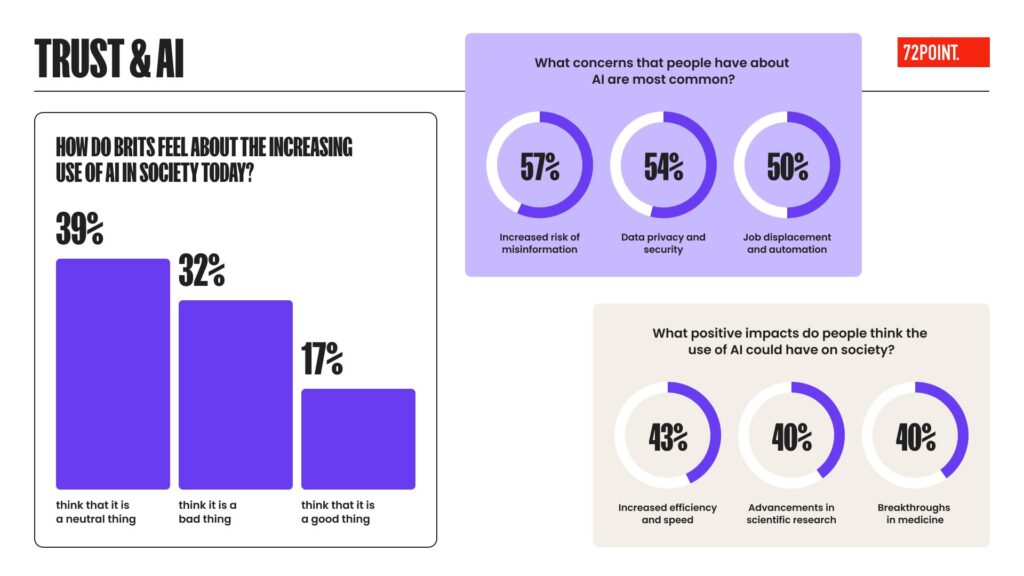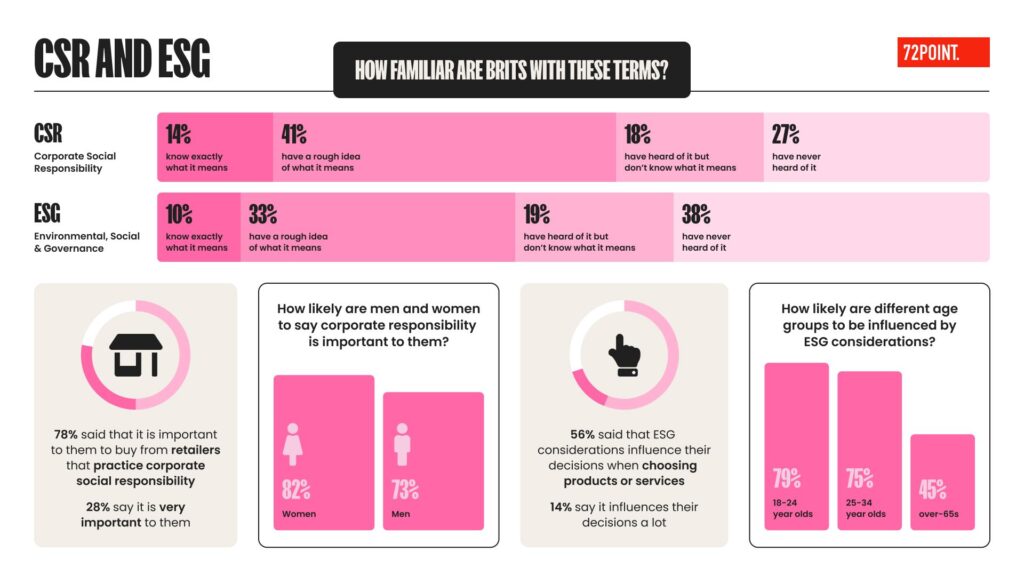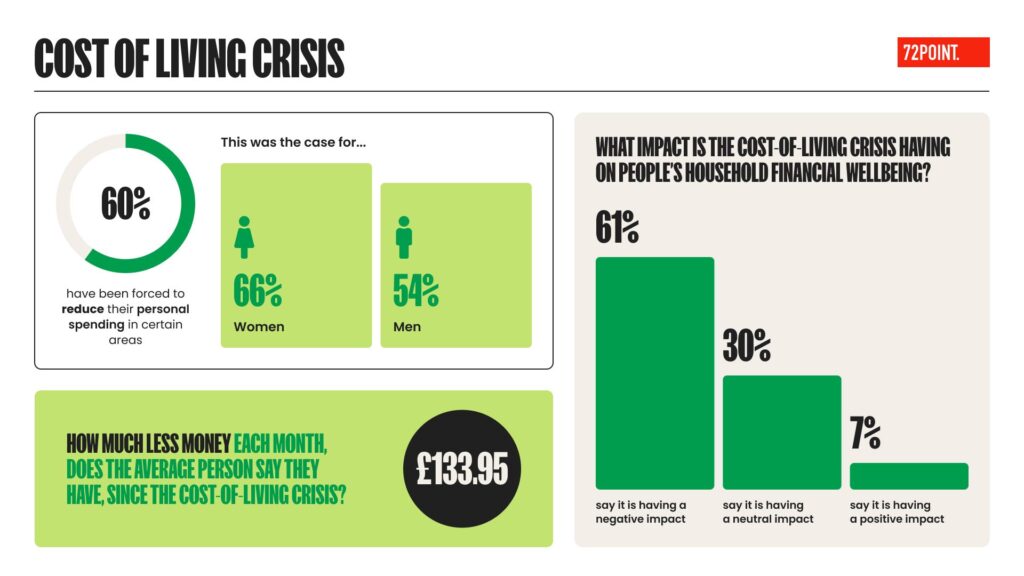Unveiling the tapestry of consumer trust, corporate social responsibility and economic realities
This week, we had the pleasure of hosting clients from top organisations such as BA, Wickes, Readdle and Smart Energy GB. Alongside a delicious dinner and some fantastic views, there was insightful conversation around our latest consumer insights we generated with OnePoll (our research arm of 72Point). You can find my top takeaways below:
Trust in the Age of AI
Artificial Intelligence (AI) has swiftly transitioned from a futuristic concept to an omnipresent force in our lives. However, alongside its proliferation comes a growing concern over trust. Recent surveys indicate a notable shift in public perception, particularly concerning image manipulation. As consumers become more tech-savvy, they are increasingly aware of AI’s capabilities and limitations in altering reality.
Yet, amidst this understanding, trust issues loom large, worsened by the misuse of AI as a marketing buzzword. Companies using AI without transparency risk eroding consumer trust. The misrepresentation of AI’s capabilities not only undermines credibility but also alienates consumers who feel misled. Brands bear a responsibility to educate customers about AI’s reality.
Strategies such as providing educational resources and engaging in open dialogue empower consumers, fostering a sense of partnership rather than patronage.

Embracing Genuine Corporate Social Responsibility
Corporate Social Responsibility (CSR) has transcended mere philanthropy to become a cornerstone of brand identity. Recent insights underscore the growing importance of genuine action in CSR efforts. Consumers demand more than lip service; they seek tangible evidence of brands’ commitment to social and environmental causes.
Clear CSR initiatives wield significant influence over consumer perceptions. Brands that prioritise authenticity in their CSR endeavors not only enhance their reputation but also cultivate loyalty among consumers. Award-winning PR campaigns often hinge on purpose-led, CSR-focused initiatives, underscoring the symbiotic relationship between brand belief and societal impact.
Sustainability lies at the heart of contemporary CSR initiatives, yet navigating this terrain is fraught with complexity. Consumers discern between genuine sustainability efforts and superficial gestures, gravitating towards brands that demonstrate a sincere commitment to environmental stewardship. Brands must transcend mere box-ticking exercises, embracing sustainability as a core ethos rather than a fleeting trend.
Consumer attitudes towards CSR initiatives are nuanced, shaped by socioeconomic factors such as the cost of living. Despite financial constraints, consumers increasingly prioritise brands that align with their values, underscoring the pivotal role of CSR in purchasing decisions. Brands can bridge the gap between aspiration and reality by making CSR efforts tangible and relatable, fostering meaningful connections with local communities.

Navigating Economic Realities and Sustainable Choices
In the realm of consumer economics, sustainability appears as a pivotal consideration. Motivated by environmental concerns, individuals grapple with the complexities of balancing social good with financial constraints. While sustainability is a compelling factor in buying decisions, economic realities often dictate choices.
The allure of cheaper products presents a formidable challenge to brands striving to incorporate sustainability into their offerings. Consumers weigh the tangible benefits of cost savings against the intangible allure of sustainability, posing a conundrum for businesses looking to effect change.

In conclusion, the interplay between trust, CSR, and economic considerations shapes the contemporary consumer landscape. Brands that navigate these dynamics with integrity and foresight stand poised to not only survive but thrive in an ever-evolving marketplace. By fostering trust, embracing genuine CSR initiatives, and navigating economic realities, brands can forge meaningful connections with consumers, transcending transactional relationships to cultivate lasting loyalty.
This was the first in a series of executive dinners we’ll be hosting throughout the year. If you’d like to join me at the next one, drop me a line at james.coleman@72point.com.
